Many people say, “everything happens for a reason.” But many others say, “everything is random.” Perhaps these two ways of looking at events in our lives are not contradictory, but complementary. An event may be random but have such profound effects on the trajectory of our life that we cannot imagine things being different. Those events can give meaning to our lives. They are the reason we are who we are.
A Random Occurrence
In late April I was diagnosed with multiple myeloma, a nasty blood cancer that starts when malfunctioning plasma cells in the bone marrow begin to proliferate. In my case I had been having minor aches and strains, particularly in my left hip, that physical therapy and massage did not resolve. So on my 72nd birthday (April 18) I met with an orthopedist in Colorado. He said my hips looked healthy and he diagnosed the injury as a left adductor tendon tear. But as he pored over the X-ray, he noticed some tiny spots on the bone which he could not explain – he said I should probably get a second opinion.
Nine days later, back in Boston, I had a follow-up CT scan in the morning and my wife and I met with our PCP, Dr. Kimberly Parks, that afternoon. She gave us the diagnosis. Multiple Myeloma. In that instant, my life, and my identity, was irrevocably changed. I was no longer a relatively fit and healthy, 72-year-old man. I was now seriously impaired — the target of a potentially deadly blood cancer, one originating in my own body.
The next few days were a whirlwind, involving a temporary housing relocation, innumerable scans and tests, meetings with two oncology teams, adjustment to a variety of medications, and the challenge of learning to live out of a hotel room. My disease was described as treatable, but not curable. It was also progressing very fast. I was told I was at risk for renal failure and spontaneous fracture. There was concern that I would need surgery to deal with spinal cord compression at T2. Fortunately, these horrors did not materialize.
Weekly chemotherapy sessions began at Mass General Hospital on May 9th. During this period my physical mobility continued to decline, and other symptoms began to appear. A rapid accumulation of fluid (edema) revealed another negative aspect of my specific disease – a buildup of amyloid plaque. That accumulation had permanently damaged my heart, a condition diagnosed as congestive heart failure. Fortunately, Dr. Parks had specialized in heart heath and was already on my medical team. Under the diuretics and low sodium she prescribed, I dropped 40 pounds in three weeks. She also explained that congestive heart failure was another treatable but not curable condition.
I will carry both the cancer and heart disease, along with the drugs and the health habits that will keep me alive, for the rest of my life.
This was a terrible thing to happen. The doctors have all assured me that the disease was not the result of my past behavior or habits – and probably not even my genes. Multiple myeloma, like many cancers, cannot be attributed to known causal factors. All humans have mutated cells in their body, created as the vast billions of old cells die and new cells are made – including mutated plasma cells in bone marrow. But those mutations lead to disease for only a very small number of individuals. There is no definite cause, just a probability that the disease will strike. I’d call that random.
What Happened Next
What happened after my diagnosis was remarkable. My wife orchestrated a mobilization of resources and people to provide care and comfort to me, and also to support her, in this very difficult time. We no longer have a home in the Boston area, so we had to move into the Marriott Residence Inn in Concord MA. Our hotel room was quickly transformed into a home. Family members and friends came to help in rotating shifts – staying with me and walking me in the hotel parking lot, bringing in supplies, driving us to and taking notes at appointments, organizing the growing number of medicines, cooking meals, doing errands, and always offering their love and support.
At the same time, the medical team at MGH, under the leadership of Dr. Noopur Raje, mobilized rapidly and guided me into a chemotherapy treatment program grounded on the very latest of medical science. Twenty years ago, the diagnosis of Multiple Myeloma was a death sentence – but 21st century advances have identified a growing number of treatment options offering a probability for long term remission with high quality of life. I began weekly treatment with a quad chemo regime of Daratumumab, Velcade, Revlimid and Dexamethasone, along with dozens of pills for pain, side effects (nausea, constipation, fatigue, insomnia, mouth sores) and immune support.
As I write this three months later, the disease has been suppressed: my hematology and chemistry markers are all in normal ranges. The worst of the symptoms and side effects have abated. For the most part, I can resume normal activities and enjoy the wonderful life that my wife and I share. This is a miracle.
Yet I also know that the full story is still being written. My conditions are not curable. They are also not static. Each day is a new day. Each blood test provides a new set of data points on the status of the cancer within me. Each visit to a doctor brings the chance that something will be revealed. This uncertainty is uncomfortable. But it can also be an inspiration to make the most of each new day.
A Personal Reflection
The outpouring of love and concern, the offers of help, sometimes from complete strangers, and the compassion of the medical team, was a powerful elixir for my healing body and wounded soul. In the months since the diagnosis, I feel more supported, more cared for and more loved than ever before. The experience also opened many doors. Old ties of friendship have been renewed, new friendships have been created, and the bonds with and among our extended family and close friends have grown stronger and deeper. From this terrible experience, many blessings have flowed.
I am also indebted to the medical science practitioners who have worked so hard for so many years to make this possible. It is critically important as well to remember the patients. I am filled with sadness and grief for the huge number of people who suffered and most often died from this disease in the past. Their sacrifice provided the baseline experience upon which medical science was able to advance.
Looking back, it now seems that the random, and very bad, experience of getting Multiple Myeloma, provided both challenges and blessings. The challenges had to be suffered. The blessings had to be received. With the help of my wife especially, and the many family, friends and others who stepped forward, I was able to manage the suffering in my body and lean into the blessings with my heart. The person I am today is different from the person I was before the diagnosis, or from the person I would have been without it.
This is who I am today. I am marked by myeloma, a fact I acknowledge by the “multiple myeloma” burgundy polish on my left big toe. I am sad about what has been lost, but grateful for what I have gained. My life has been changed by the lessons learned and the human connections that have been shared. I cannot imagine things being different. These events have given meaning to my life. They are the reason I am who I am today.
I’d say — this is not random.
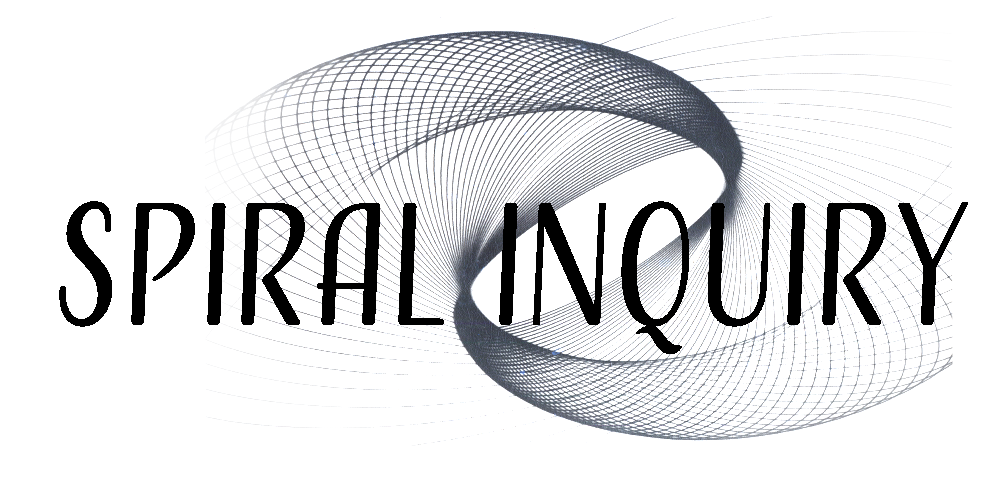
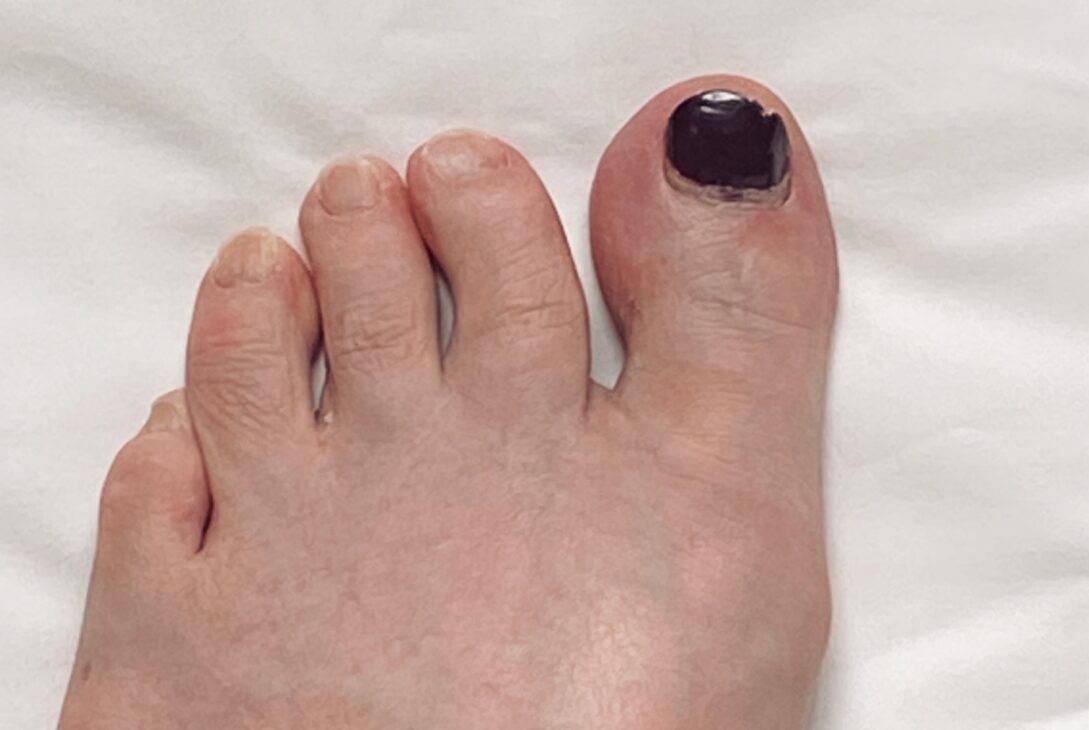

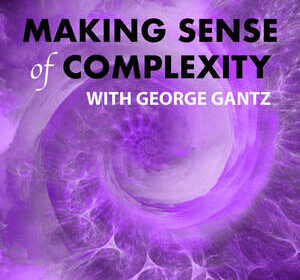
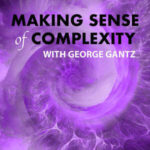











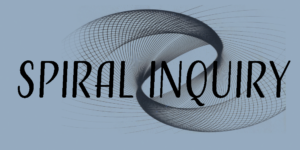



George, Yes, you are lucky for the support and medical team you have, the rapid improvement in cancer research that has taken place, and, to some extent, being at the right place at the right time. But you are also lucky (or perhaps “plucky”?) to be you. As you have grown over the years from toddler to now, you have become the staunch soul that you are, able to turn your sudden multiple myeloma into an essay that should be posted in every cancer ward in the universe to give others hope. Your brother.
Dear George,
I am so sorry to hear about your two serious diagnoses of multiple myeloma and congestive
heart failure. Either of these alone would have been bad enough, but now you must deal with both together. The inspiring story you have written about how you are coping is certainly appreciated. I hope your story will continue with good results for a long time. I’m looking forward to reading
all you have to say.
Blessings,
Forrest Dristy
George,
Thank you for sharing your experience and as usual you have chosen positivity, reflection and inspiration where many would dwell in sadness, grief and pain. I can’t wait to give you a hug and spend time together again … your story has touched so many and we pray for you and W regularly.
Philosophically, I have often thought about the subject of your text: balancing the idea of God’s Providence and the apparent randomness in life. I have come to a similar conclusion … they can and do coexist. From our mere mortal perspective (and therefore our reality) things happen randomly every day. This can and must be the case to provide us a platform for free will and the ability to chose our path day to day. On the other hand, God has “numbered every hair on our head” (Luke 12:7) and if he is truly omniscient and Omnipresent it must be the case, that he is aware of every thing we experience, even every cell’s multiple.
The answer? …. Let God do God (Romans 11:33-36), and may we exercise our God given choice to chose our path(s) wisely. Trust that we are in our loving God’s hands and choose the path of hope and love.
Choose to believe that as our minds can be lifted above the apparent natural reality, there is a parallel spiritual reality where your body and your mind are completely healthy, alive and with you at all times.
Thank you again for sharing your experience and Remember the rest of Luke 12:7, “you are more valuable to God than a whole flock of sparrows.”
Be well my friend!